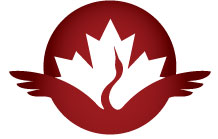[In order to bring up-to-date our website readers who are not CanKor Report subscribers, we are posting the introductions of the last three issues for your information. Here follows the introduction to the last CanKor Report #350, dated 27 July 2013, the 60th Anniversary of the Armistice Agreement. –CanKor]
Dear Friends,
Exactly 13 years after the first CanKor newsletter was sent out to a handful of subscribers on 25 July 2000, we have reached the end of the road with this CanKor Report number 350. Cordial expressions of thanks and regret about the closing of CanKor continue to reach us. Many of them are directed towards me personally. I wish to quote two of them here, because each author has been an important mentor of mine.
The first is from David B. Dewitt, currently Vice-President of Programs at the Centre for International Governance Innovation in Waterloo. David was my faculty advisor when I did my fellowship year at York University in Toronto:
“I, too, am saddened by the pending termination of CanKor. You provide an important contribution and service to those interested in not just the Korean Peninsula but also in the larger Asia Pacific context. And you and your team have done this with focus, determination and integrity for so many years. Just at a time when some mix of both rhetoric by some and indifference by others seems to be emerging, your lens would have been all that much more important. Although CanKor may be winding down, I trust that it doesn’t mean that we won’t regularly or at least occasionally be hearing from you.”
The second comes from Baldwin Sjollema, who was a role model for me when he headed the highly controversial World Council of Churches’ Programme to Combat Racism in the 1970s:
“What you and your wife have done over these past years through CanKor is exactly what I think the ecumenical movement is about: serving with conviction and compassion the wider human community in its almost endless struggle for justice and peace. The Korean issue is one of the toughest in today’s world. You have set in motion something, and something will have to take its place! With your service you have made a real contribution, which is appreciated by many people like myself, especially because nobody else did it. I am most grateful to you and express my special gratitude to you.”
As much as I take pride in such heartfelt approbation, I cannot in good conscience take all the credit for what CanKor is and was. Some of those who were involved in the past are mentioned in “CanKor history” on our website. We had powerful moral and material support from many friends, colleagues, contributors, volunteers and donors. Let me just mention a few of them here: Read the rest of this entry »






 For a little more than a decade starting with the end of the Cold War in Europe Canada was an engaged, proactive and sometimes innovative player in multilateral security issues in Northeast Asia. It initiated the North Pacific Cooperative Security Dialogue between 1990 and 1993, a pioneering track-two process including the principal six in Northeast Asia plus Canada and Mongolia intended to lay the foundation for an inclusive regional process in a region re-framed as the North Pacific. It pursued an “engagement without illusions” approach to North Korea that included encouragement of multiple levels of academic and NGO connections and eventually led in 2001 to the establishment of diplomatic relations. The government provided financial assistance to KEDO and supported diplomats and academics in multiple track-two meetings on a multilateral and bilateral basis that focused on regional frameworks and initiatives, including on arms control, missile defense weaponization of space, and non-proliferation.
For a little more than a decade starting with the end of the Cold War in Europe Canada was an engaged, proactive and sometimes innovative player in multilateral security issues in Northeast Asia. It initiated the North Pacific Cooperative Security Dialogue between 1990 and 1993, a pioneering track-two process including the principal six in Northeast Asia plus Canada and Mongolia intended to lay the foundation for an inclusive regional process in a region re-framed as the North Pacific. It pursued an “engagement without illusions” approach to North Korea that included encouragement of multiple levels of academic and NGO connections and eventually led in 2001 to the establishment of diplomatic relations. The government provided financial assistance to KEDO and supported diplomats and academics in multiple track-two meetings on a multilateral and bilateral basis that focused on regional frameworks and initiatives, including on arms control, missile defense weaponization of space, and non-proliferation.


